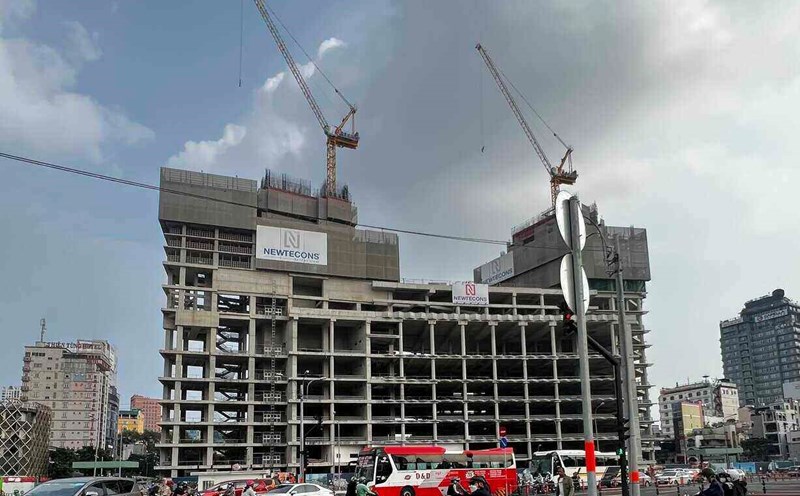Recently, at a working session with ministries, branches, associations, banks, and enterprises on the real estate market situation, Prime Minister Pham Minh Chinh requested the Ministry of Finance to urgently study and issue a policy to tax real estate for unused houses and residential land, the difference between land prices and selling prices.
Talking with Lao Dong, Ms. Giang Huynh - Director of Savills Research Department - commented that on the positive side, if designed reasonably and implemented effectively, the policy of taxing abandoned real estate can bring many long-term benefits. Accordingly, the policy will contribute to limiting speculation, forcing real estate owners to consider the effectiveness of asset exploitation instead of just holding them to wait for prices to increase.
At the same time, this also puts pressure on both buyers and project developers, forcing them to calculate the actual exploitation capabilities, thereby promoting the market towards customers with real needs for use, instead of just serving the purpose of surfing.

However, Ms. Giang Huynh - commented that in order to effectively apply this policy, it will have to overcome some challenges. First of all, there needs to be a clear and practical definition of the concept of not used. In fact, many real estates may be delayed after handover due to reasons such as financial difficulties, an un formed rental market, or being in the process of trade negotiations.
The current land management data system has not been fully digitized and lacks uniformity, making it difficult to track current owners, determine the time the real estate is vacant, as well as monitor and record the status of use over time. This will be a major barrier in the policy implementation process if a transparent, complete and connected data platform has not been built.
Talking with Lao Dong, lawyer Pham Thanh Tuan - Hanoi Bar Association, real estate legal expert - commented that taxing real estate on unused land and housing is a necessary act. Currently, there are two main groups of land users including businesses and individuals. However, the regulation on sanctions or financial obligations for the act of delaying land use and land abandonment is not consistent.
Evidence of this, lawyer Pham Thanh Tuan - said that the 2013 Land Law (Article 64 of Clause 1 point h) and the Land Law 2024 (Article 81 of Clause 8) are only specified if the enterprise is allocated land by the State, the land lease is slow to put the land for 12 consecutive months from the date of handing over the land in the field or 24 months compared to the investment project progress, it may be extended for additional land use for 24 months.
If after 24 months the land has not been put into use, the state will reclaim it and will not compensate for the land and assets on the land. Thus, the fact that businesses are slow to put land into use has had very strict regulations, as a basis for handling the case of investors deliberately slow to put land into use.
However, the land law and current regulations have only individuals if they do not put agricultural land for 18 - 24 months and have been administratively sanctioned but still slow to put the land into use, they may be recovered by the State (Article 81 of Clause 7 of the 2024 Land Law). There is no regulations on land acquisition with individuals using residential land, non -agricultural land unused or abandoned. The provisions of the tax law also do not specify higher tax rates or taxes for not putting land into use, especially individuals.
"Thus, it is clear that with current regulations, individuals who buy commercial real estate and then leave it abandoned, do not use the land are not subject to any sanctions and are not subject to a higher tax rate than normal land users. This is unreasonable in land and tax policies," said lawyer Pham Thanh Tuan.











